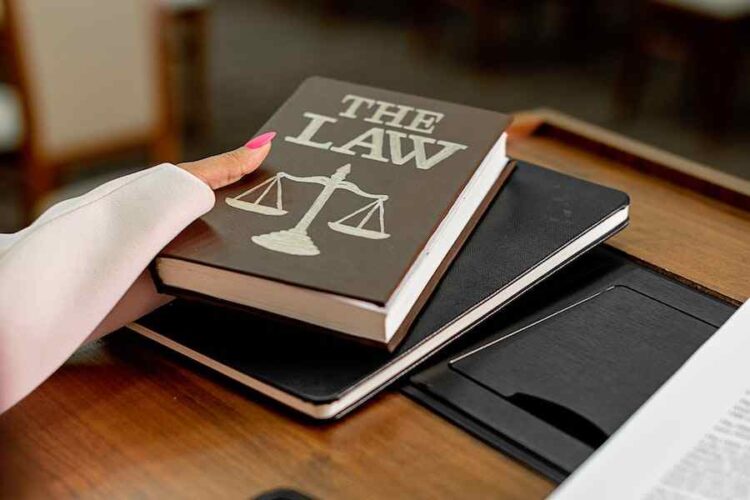In the legal profession, effective communication plays a vital role in ensuring the smooth functioning of the legal system. Attorneys must engage in timely and professional correspondence with their colleagues to uphold the principles of justice and provide quality representation to their clients. One crucial aspect of attorney communication is the timely response to other attorneys. This article delves into the question of how long an attorney typically has to respond to another attorney’s communication. By understanding the legal framework, exploring factors influencing response timeframes, and discussing best practices, we can shed light on this important aspect of professional conduct within the legal community.
How Long Does An Attorney Have To Respond To Another Attorney?
The specific time frame for an attorney to respond to another attorney’s communication can vary depending on various factors such as the nature of the matter, jurisdiction, and urgency. However, a general expectation is to respond within a reasonable time, which is often interpreted as a few days to a week, taking into account the circumstances and professional courtesy within the legal community.
Understanding The Legal Framework For Attorney Communication
Effective and ethical communication is a cornerstone of the legal profession, and attorneys are guided by legal ethics and professional responsibility rules in their interactions with each other. These rules are established to ensure transparency, professionalism, and fairness in the practice of law. Attorneys have a duty to communicate promptly and effectively, not only with their clients but also with opposing counsel.
Professional associations and bar associations provide guidelines and rules that attorneys must adhere to regarding communication. These guidelines may vary depending on the jurisdiction, but they generally emphasize the importance of timely and respectful communication. Attorneys are expected to maintain professionalism, honesty, and courtesy in their interactions with other attorneys.
Attorney-client privilege is an essential aspect of attorney communication. While attorneys have an obligation to communicate with opposing counsel, they must also protect the confidentiality and privilege of their clients. This delicate balance requires attorneys to be cautious and mindful of what information can be shared with opposing counsel while ensuring they fulfill their ethical duty of communication.
Factors Affecting Response Time
Several factors can influence the response time of an attorney when communicating with another attorney. Understanding these factors is crucial in determining a reasonable timeframe for a response. Here are some key factors to consider:
- Complexity and Nature of the Legal Matter: The complexity and nature of the legal issue at hand can significantly impact the response time. Matters that require extensive research, analysis, or consultation with clients may require more time to formulate a comprehensive response.
- Applicable Jurisdiction and Court Rules: Different jurisdictions and courts may have specific rules and guidelines regarding response times. Attorneys must be familiar with these rules and ensure compliance to avoid potential sanctions or negative consequences.
- Urgency or Time Sensitivity: Certain legal matters may have urgent or time-sensitive components, such as filing deadlines or requests for immediate action. In such cases, attorneys are expected to prioritize their responses accordingly to meet the required timelines.
- Professional Courtesy and Common Practices: Professional courtesy plays a significant role in attorney communication. Attorneys often establish informal expectations and norms within their local legal community. It is important to consider the prevailing practices and expectations to maintain effective professional relationships.
- Workload and Availability: Attorneys may have varying workloads and commitments, which can impact their availability to respond promptly. Court appearances, client meetings, and other legal obligations can affect response times, especially if the attorney is handling multiple cases simultaneously.
- Communication Method: The chosen method of communication can also affect response time. Emails and instant messaging may allow for quicker responses compared to traditional mail or formal written correspondence.
Consequences Of Delayed Or Inadequate Responses
Delayed or inadequate responses from attorneys can have significant consequences, both ethically and professionally. Here are some key repercussions to consider:
- Impact on Client Representation and Case Outcomes: A delayed or insufficient response can negatively impact a client’s case. It may result in missed opportunities, compromised legal strategies, or the loss of valuable evidence or legal arguments. Clients rely on their attorneys to provide timely and effective representation, and any delay or inadequacy in response can harm their interests.
- Legal and Ethical Implications: Attorneys have ethical obligations to communicate promptly and honestly with other attorneys. Failing to meet these obligations can result in ethical violations and potential disciplinary action. Bar associations and regulatory bodies may investigate complaints regarding inadequate or delayed responses, potentially leading to sanctions or loss of professional standing.
- Damage to Professional Reputation: Attorneys who consistently provide delayed or inadequate responses may develop a reputation for unprofessionalism or incompetence. Word-of-mouth within the legal community can spread, impacting future referrals, client trust, and professional relationships. Maintaining a positive professional reputation is crucial for long-term success in the legal field.
- Court-Imposed Sanctions: In certain cases, courts may impose sanctions for attorneys who fail to respond in a timely manner. These sanctions can range from warnings and admonishments to monetary fines or even adverse rulings that can harm the attorney’s client or case.
- Strained Professional Relationships: Inadequate or delayed responses can strain professional relationships between attorneys. Opposing counsel may become frustrated or perceive a lack of respect, potentially impacting negotiations, settlement discussions, or future collaborations.
Best Practices For Timely Attorney Communication
To ensure timely and effective communication between attorneys, it is important to establish and adhere to best practices. Here are some key strategies that can help attorneys improve their response time and maintain professionalism:
- Establish Internal Communication Policies: Law firms should develop internal policies and guidelines that emphasize the importance of timely attorney communication. These policies can set clear expectations, define response timeframes for different types of communications, and outline procedures for handling urgent matters.
- Prioritize and Manage Incoming Communications: Attorneys should develop effective systems to manage their incoming communications. This may involve categorizing and prioritizing emails, phone calls, and other forms of correspondence based on urgency, importance, or deadlines. Regularly reviewing and organizing communications can help ensure that no messages are overlooked or delayed.
- Utilize Technology and Tools: Leveraging technology can greatly enhance communication efficiency. Attorneys can use email filtering, automation, and notification systems to streamline their workflow and promptly respond to messages. Case management software, document-sharing platforms, and secure messaging applications can also facilitate quick and secure communication with other attorneys.
- Communicate Expectations with Clients: Attorneys should communicate their response timeframes to clients, managing their expectations regarding communication. This includes informing clients about realistic response times based on the nature of the matter and setting up clear lines of communication to address client inquiries promptly.
- Professional Courtesy: Attorneys should prioritize professional courtesy in their interactions with other attorneys. Responding to communications in a timely manner and acknowledging receipt of messages can demonstrate respect and foster positive professional relationships.
- Regularly Check and Update Communication Channels: Attorneys should frequently check their communication channels to avoid missing important messages. This includes monitoring emails, voicemails, and other platforms used for communication. Updating contact information and ensuring that the channels are functioning properly can minimize delays caused by technical issues.
Conclusion
Timely and effective communication between attorneys is crucial for the proper functioning of the legal profession. Understanding the legal framework, factors influencing response time, and consequences of delayed or inadequate responses is essential for attorneys to uphold their ethical responsibilities and provide quality representation to their clients. By implementing best practices such as establishing internal communication policies, prioritizing and managing incoming communications, utilizing technology and tools, and maintaining professional courtesy, attorneys can improve their response time and enhance their professional reputation.
FAQs
Q: What Is Considered A Reasonable Response Time For An Attorney To Respond To Another Attorney?
The specific time frame for a reasonable response can vary depending on various factors such as the complexity of the matter, jurisdiction, urgency, and professional courtesy. Generally, responding within a few days to a week is considered reasonable, taking into account the circumstances and prevailing practices within the legal community.
Q: What Are The Potential Consequences Of Not Responding To Another Attorney’s Communication In A Timely Manner?
Delayed or inadequate responses can have significant consequences for attorneys. These may include negative impacts on client representation and case outcomes, ethical implications leading to disciplinary action, damage to professional reputation, court-imposed sanctions, and strained professional relationships.
Q: Are There Specific Rules Or Guidelines That Govern Attorney Communication And Response Time?
Yes, attorneys are guided by legal ethics and professional responsibility rules that emphasize prompt and effective communication. Professional associations and bar associations provide guidelines and rules that attorneys must adhere to regarding communication, although specific rules may vary by jurisdiction.
Q: How Can Technology Be Utilized To Improve Response Time And Attorney Communication?
Technology can be leveraged in several ways to enhance response time and communication. Attorneys can use email filtering, automation, and notification systems to streamline their workflow. Case management software, document-sharing platforms, and secure messaging applications can facilitate quick and secure communication. These tools can help attorneys stay organized, promptly respond to messages, and collaborate efficiently with other attorneys.
Q: How Can Attorneys Balance Response Time With The Need For Careful Consideration And Research?
Attorneys must strike a balance between responding promptly and conducting necessary research or analysis. It is important to communicate within a reasonable timeframe while ensuring that the response is well-reasoned and supported. Prioritizing and managing incoming communications, as well as effective time management, can help attorneys allocate appropriate time for thorough consideration and research while meeting response expectations.










